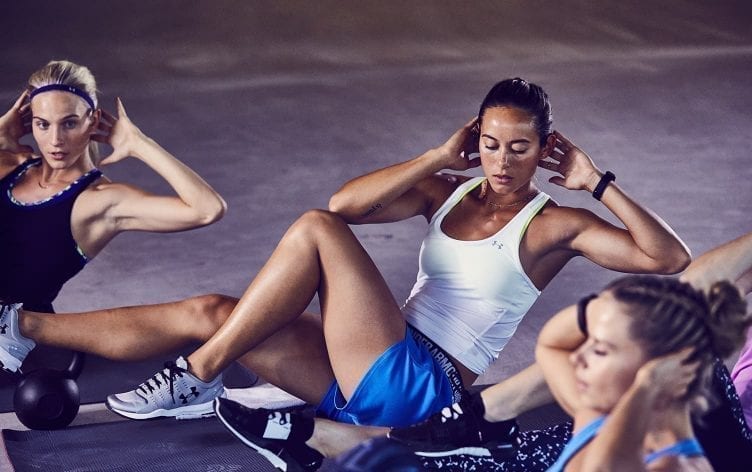
The Common Mistake That Is Making Your Abs Workout Less Effective
If you find that your neck starts to ache in the middle of a round of sit-ups, crunches, or other abs exercises, you may chalk it up to a necessary evil. But not only should your neck not hurt when you’re working your core, the fact that it does in an indication that you’re not doing your abs moves in the best, most effective way.
“If your abdominal muscles are weak and inefficient at a movement, you may compensate with the neck to get through the exercise,” explains physical therapist Mike Reinold, C.S.C.S.
Relying on your neck to get through an abs exercise is a common mistake, but one that can leave you with unnecessary soreness and take away from the effort you’re putting into the exercise at hand.
Straining your neck is especially common with exercises like Russian twists and V-ups, says Reinold. Crunches are also common culprits. “Really, anything where you have to either curl you body up or hold your head in place,” he adds. “Many people don’t have the neck muscle endurance to hold their neck in these postures for a sustained time.”
Even though it probably won’t cause long-term damage, putting too much strain on your neck can feel pretty uncomfortable. It’s pretty simple to tell if you’re relying too much on those neck muscles to get through your abs workout—you’ll feel it. You shouldn’t be feeling any strain in your neck at all during or after a core exercise, says Reinold. Here’s how to minimize it—so your abs workouts don’t have to be a pain in the neck.
1. First, make sure you’re doing the exercise correctly.
“Neck strain is often caused by poor technique and involves too much neck flexion. You’re really aiming to be flexing your core, not your neck,” says Reinold. Make sure you’re consciously engaging your core muscles and using them to power you through an exercise, not your neck.
2. Use your hands to help support your neck (without pulling it upwards).
“You can use your hands to take some stress off you neck muscles by cradling your head,” says Reinold. “Hands interlocked behind the head often works—just keep your head neutral.” So no craning, twisting, or pulling. Think of your hands as gently holding your head, they are not there to help lift it off the ground—that’s what your abs should be doing.
3. Try doing abdominal exercises where you’re less prone to neck strain.
If all else fails, try doing other abs moves to strengthen your core before going back to exercises that involve your neck. “Exercises that do not involve flexing, like planks, can often be better for someone who is straining their neck with the more traditional crunch and sit-up.” Just make sure you’re keeping a neutral spine and not dropping your head as that can irritate your neck, too. Here’s how to do the perfect plank.





